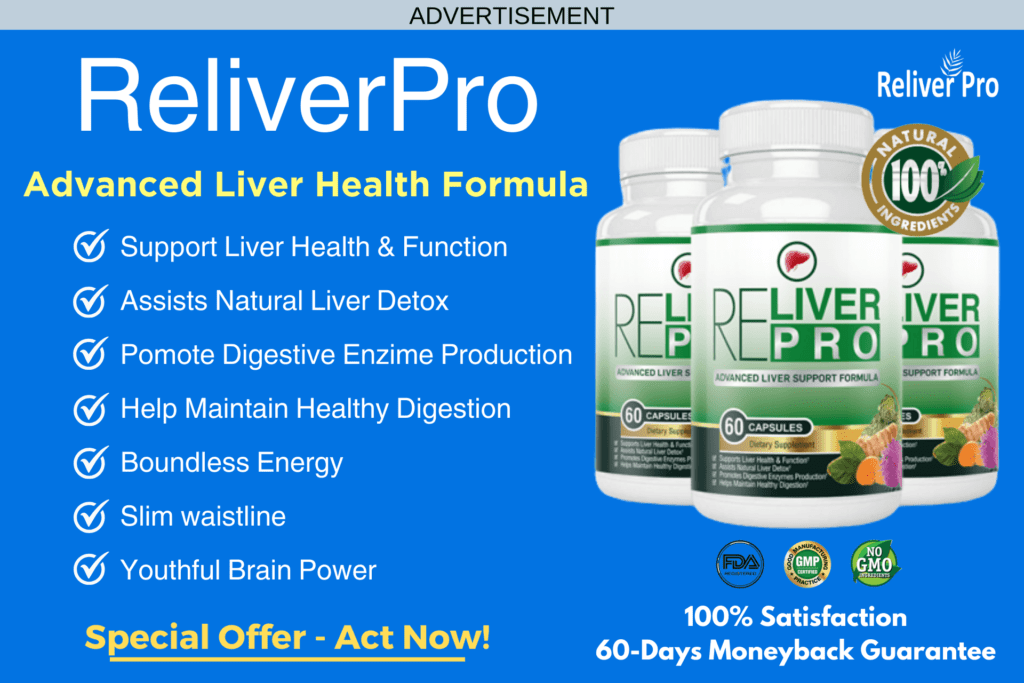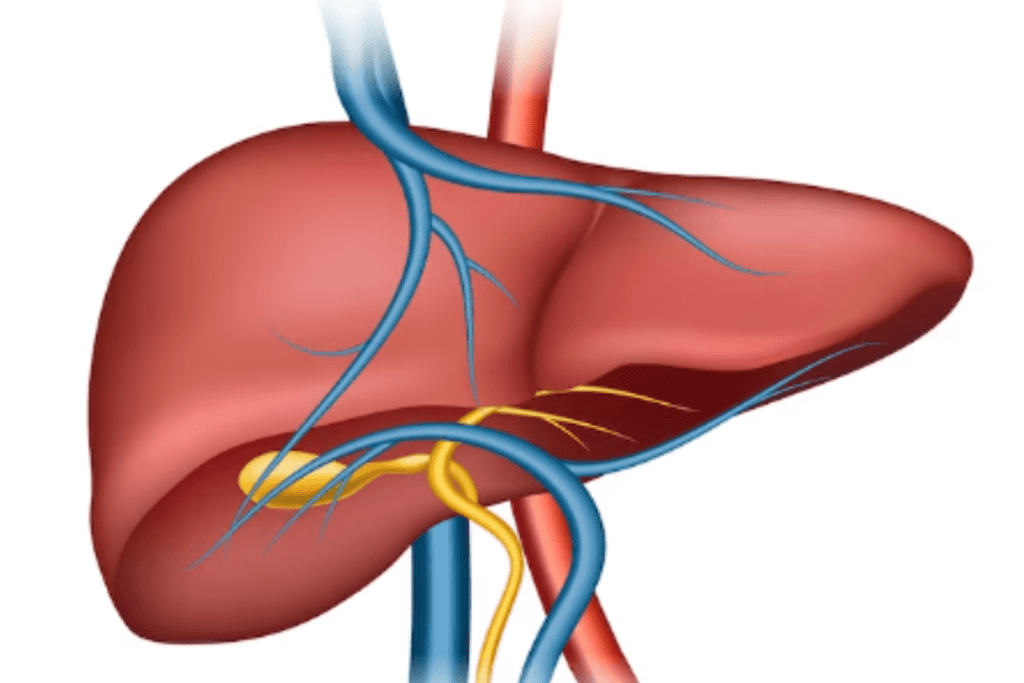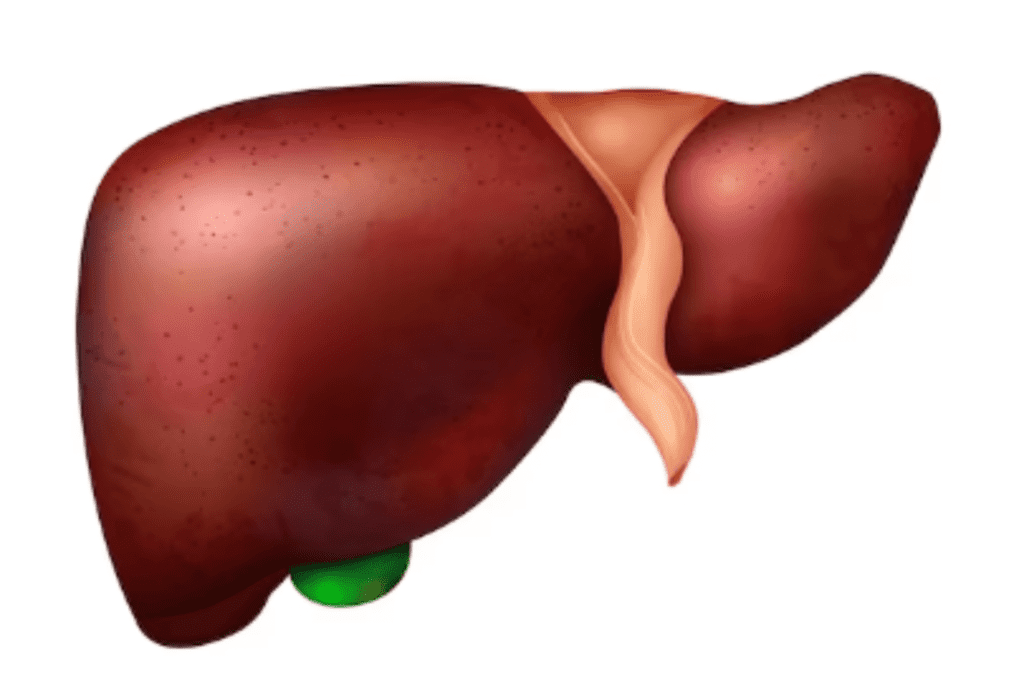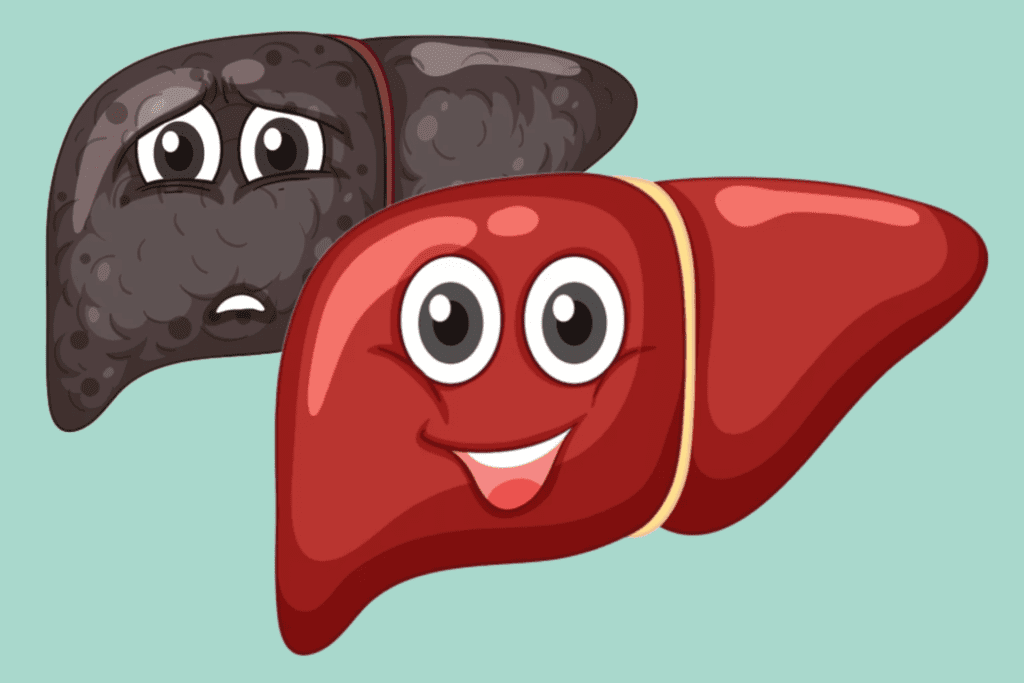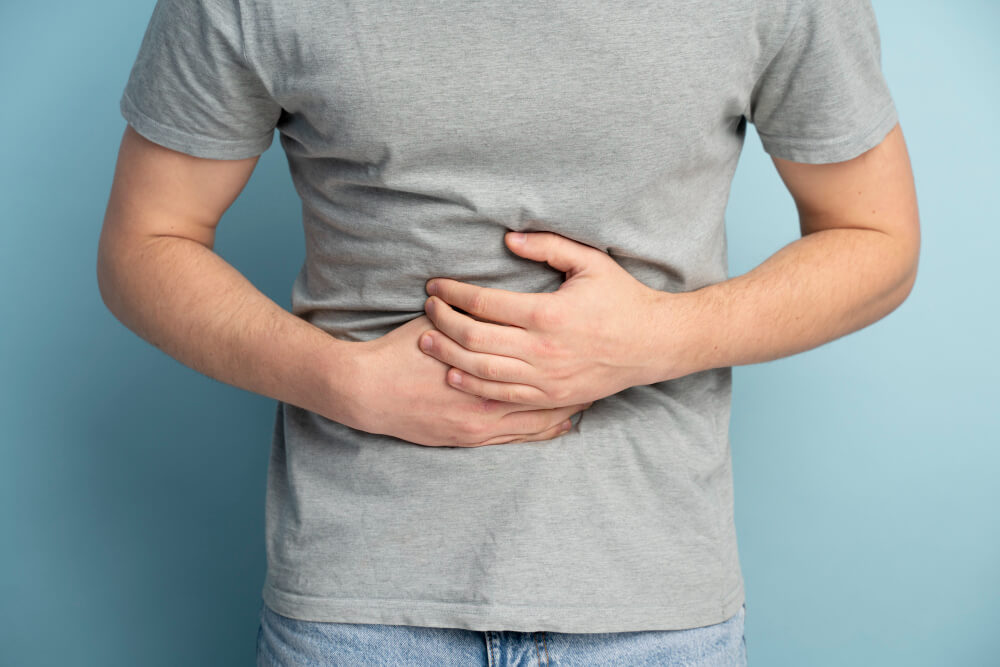We sometimes add products that we believe may be beneficial to our readers. We may receive a small commission if you purchase using the links on this page. Read our affiliate disclaimer
Liver detox, also known as “liver cleansing” or “liver detoxification,” refers to the practice of supporting the liver’s natural processes of breaking down, neutralizing, and eliminating toxins from the body. The liver is a vital organ responsible for processing and filtering blood, metabolizing drugs, producing bile, and performing various other essential functions. Its detoxification functions involve converting harmful substances into less harmful forms that can be excreted through urine or bile.
Table of Contents
ToggleThe idea behind liver detox is to optimize the liver’s ability to eliminate toxins and waste products, thus promoting overall health and well-being. Proponents of liver detox believe that by following specific diets, consuming certain foods or supplements, or engaging in particular practices, individuals can enhance the liver’s detoxification capacity.
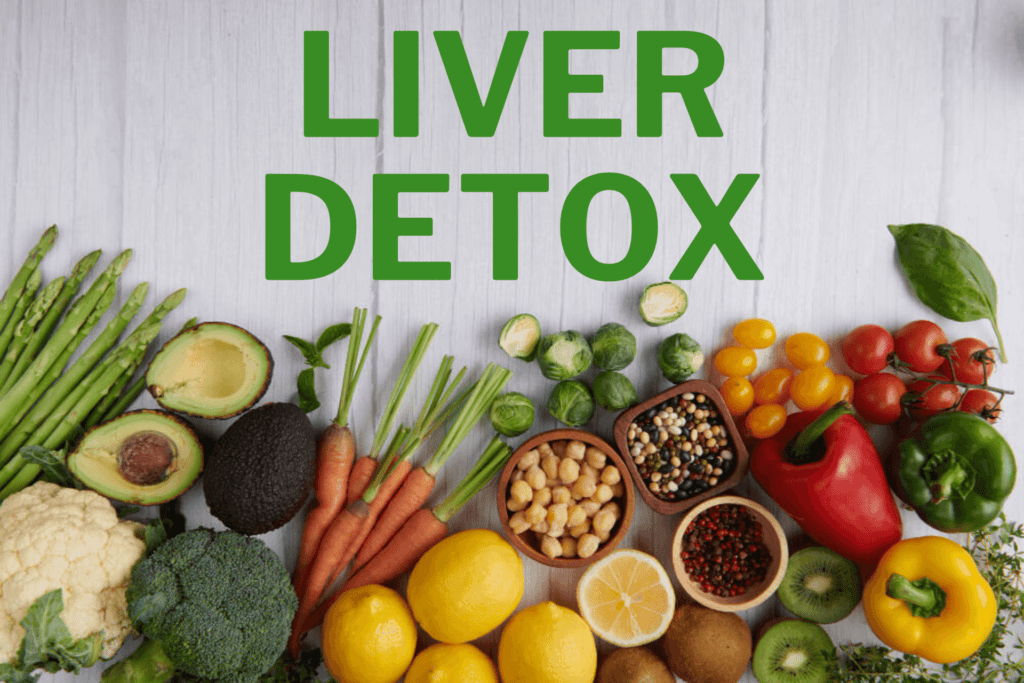
Liver Detox and Science
Liver detoxification is a natural and essential process that occurs within the liver to neutralize and eliminate toxins from the body. The liver is equipped with a complex set of enzymes and biochemical pathways that facilitate the breakdown of harmful substances into less toxic compounds that can be safely excreted. While the concept of liver detox is rooted in science, it’s important to understand the facts and avoid falling for exaggerated claims or unsupported methods.
Scientific Basis of Liver Detoxification
Phase I and Phase II Detoxification:
The liver’s detoxification process involves two main phases. In Phase I, enzymes metabolize toxins into intermediate forms. In Phase II, these intermediates are further modified to become water-soluble compounds that can be eliminated through urine or bile.
Enzyme Systems:
Cytochrome P450 enzymes are a group of enzymes in the liver responsible for Phase I detoxification. These enzymes play a crucial role in converting fat-soluble toxins into more water-soluble forms. Phase II involves various enzyme systems, including glutathione conjugation, sulfation, and glucuronidation, which further modify toxins for elimination.
Antioxidant Defense:
The liver is also equipped with antioxidant mechanisms to protect its cells from damage caused by free radicals produced during detoxification processes. Antioxidants like glutathione and vitamins C and E play a significant role in this defense.
Are Liver Detoxes Safe?
Liver detoxes can vary widely in terms of safety, effectiveness, and the methods used. While supporting the liver’s natural detoxification processes through a healthy lifestyle is generally safe, extreme detox programs and certain practices can be risky.
Here is an analysis of the safety factors to take into account:
Safe Approaches to Liver Detox
A healthy lifestyle is the most effective way to support your liver’s natural detoxification processes. Instead of following extreme or restrictive detox programs, consider these steps for a safe and effective approach to liver health:
Balanced Diet:
Adopting a balanced diet that includes a variety of nutrient-rich foods is safe and effective for supporting liver health. Foods rich in antioxidants, vitamins, and minerals can provide the necessary nutrients for the liver’s detoxification processes.
Hydration:
Staying well-hydrated is essential for overall health and supports the liver’s functions. Drinking enough water helps transport waste products out of the body.
Moderation:
Limiting alcohol consumption, avoiding excessively processed foods, and minimizing exposure to environmental toxins are safe and sensible ways to promote liver health.
Regular Exercise:
Engaging in regular physical activity is safe and can improve blood circulation, supporting the liver’s functions.
Prioritize Fiber:
Fiber-rich foods, such as fruits, vegetables, whole grains, and legumes, support digestive health and help eliminate waste products from the body.
Limit Processed Foods and Added Sugars:
Reduce your intake of highly processed foods, sugary snacks, and sugary beverages. These can contribute to inflammation and strain the liver.
Include Cruciferous Vegetables:
Broccoli, cauliflower, kale, and other cruciferous vegetables contain compounds that support the liver’s detoxification enzymes.
Consume Antioxidant-Rich Foods:
Include foods high in antioxidants, such as berries, citrus fruits, and green tea. Antioxidants aid in shielding liver cells against harm induced by free radicals.
Be Mindful of Medications:
Some medications can affect liver function. Consult your healthcare provider before taking new medications or supplements.
Limit Exposure to Environmental Toxins:
Be mindful of environmental toxins by using natural cleaning products, choosing organic produce when possible, and reducing exposure to pollutants.
Consult a Healthcare Professional:
Before making significant changes to your diet, exercise routine, or supplement regimen, consult a qualified healthcare professional. They can offer customized guidance according to your specific requirements and health condition.
Risky Practices to Watch Out For
Extreme Detox Programs:
Diets that involve prolonged fasting, extreme calorie restriction, or solely consuming juices can deprive the body of essential nutrients and disrupt its natural balance.
Unproven Supplements:
Some detox supplements marketed as “miracle” solutions lack scientific evidence and may interact with medications or cause adverse effects.
Rapid Weight Loss:
Detox programs promising rapid weight loss can lead to muscle loss, nutritional deficiencies, and rebound weight gain.
Herbal Supplements:
While certain herbal supplements like milk thistle and dandelion root have potential benefits for liver health, their effects can vary, and their use should be discussed with a healthcare professional.
Lack of Professional Guidance:
Undertaking detox programs without consulting a healthcare professional can be risky, especially if you have underlying health conditions or are taking medications.
Safety Precautions
Consult a Healthcare Professional:
Before embarking on any detox program or making significant changes to your diet or supplement regimen, consult a qualified healthcare professional. They can offer tailored guidance according to your health status and requirements.
Listen to Your Body:
Pay attention to how your body responds during detox programs. If you experience severe discomfort, adverse reactions, or worsening symptoms, stop the program and seek medical guidance.
Avoid Drastic Changes:
Gradual, sustainable changes to your diet and lifestyle are safer and more effective than extreme, rapid detox methods.
Avoid Unsubstantiated Claims:
Be cautious of products or programs that make exaggerated claims without scientific evidence to support them.
What Foods Help Liver Detoxification?
Certain foods can support your liver’s natural detoxification processes by providing essential nutrients and antioxidants. Including these foods in your diet can help promote liver health and optimize its function:
Cruciferous Vegetables
Broccoli, cauliflower, Brussels sprouts, kale, and cabbage contain compounds like glucosinolates that support liver detoxification enzymes.
Leafy Greens
Spinach, kale, and other leafy greens are rich in chlorophyll, antioxidants, and fiber that aid in toxin elimination.
Citrus Fruits
Lemons, oranges, grapefruits, and limes are high in vitamin C, which supports the production of detoxification enzymes and helps protect liver cells.
Berries
Blueberries, strawberries, and raspberries are packed with antioxidants that help combat oxidative stress and inflammation in the liver.
Beets
Beets contain betaine, which supports liver function and helps the liver process fats.
Green Tea
Green tea is rich in catechins, antioxidants that have been linked to improved liver health and function.
Avocado
Avocados are a good source of healthy fats and antioxidants that support overall health, including liver health.
Walnuts
Walnuts are high in omega-3 fatty acids, which have anti-inflammatory properties and may help support liver health.
Cruciferous Sprouts
Broccoli sprouts, radish sprouts, and other cruciferous sprouts contain even higher levels of detox-supporting compounds than their mature counterparts.
Olive Oil
Extra virgin olive oil is rich in healthy fats and antioxidants that support liver health.
Whole Grains
Whole grains like brown rice, quinoa, and oats provide fiber that supports digestive health and helps eliminate waste products.
What Herbs Support Liver Detoxification?
Several herbs are believed to support liver health and detoxification. While scientific research is ongoing and individual responses can vary, some herbs have shown potential benefits for promoting liver function. It’s important to note that before incorporating herbs into your routine, you should consult a healthcare professional, especially if you have underlying health conditions or are taking medications.
Below are a few herbs commonly linked with supporting liver health:
Milk Thistle (Silybum marianum)
Milk thistle is one of the most well-known herbs for liver support. It contains an active compound called silymarin, which is believed to have antioxidant and anti-inflammatory properties that can protect liver cells and promote detoxification.
Dandelion (Taraxacum officinale)
Dandelion root is thought to support liver and gallbladder function by stimulating bile production, which aids in digestion and the elimination of waste products.
Turmeric (Curcuma longa)
Curcumin, the active compound in turmeric, has anti-inflammatory and antioxidant properties that may benefit liver health by protecting against damage and supporting detoxification pathways.
Artichoke (Cynara scolymus)
Artichoke leaf extract is believed to stimulate bile production, which aids in digestion and the elimination of toxins. It also contains antioxidants that may protect liver cells.
Schisandra (Schisandra chinensis)
Schisandra berries are thought to have adaptogenic properties that help the liver manage stress and support detoxification.
Licorice Root (Glycyrrhiza glabra)
Licorice root is believed to have anti-inflammatory properties and may help protect the liver from damage caused by oxidative stress.
Ginger (Zingiber officinale)
Ginger has anti-inflammatory and antioxidant properties that may contribute to liver health and support its natural detoxification processes.
Peppermint (Mentha piperita)
Peppermint leaves contain compounds that can stimulate bile flow, aiding digestion and potentially supporting liver function.
Burdock Root (Arctium lappa)
Burdock root is believed to have diuretic properties that support kidney function, indirectly benefiting liver health by helping to eliminate waste products from the body.
Nettle (Urtica dioica)
Nettle leaves are rich in vitamins and minerals that support overall health, including liver function.
FAQ
Q1: What is liver detox?
A1: Liver detox refers to supporting the liver’s natural processes of breaking down and eliminating toxins from the body. It involves adopting a healthy lifestyle that includes balanced nutrition, hydration, exercise, and responsible habits.
Q2: Do I need extreme detox programs to cleanse my liver?
A2: No, extreme detox programs are often unnecessary and can be harmful. The liver has its own efficient detoxification mechanisms. A balanced diet and healthy lifestyle are more effective ways to support your liver.
Q3: Are liver detox diets effective for weight loss?
A3: Liver detox diets might lead to temporary weight loss due to calorie restriction, but lasting results require sustainable lifestyle changes. Focus on balanced eating and exercise for healthier weight management.
Q4: Can liver detox cure chronic liver diseases?
A4: No, liver detox programs are not substitutes for medical treatment. Consult a healthcare professional for chronic liver conditions like cirrhosis or fatty liver disease.
Q5: What foods support liver detoxification?
A5: Cruciferous vegetables, leafy greens, citrus fruits, berries, turmeric, garlic, artichokes, and whole grains are examples of foods that can support liver health and detoxification.
Q6: Are liver detox supplements necessary?
A6: While some supplements like milk thistle have potential benefits, they should be used cautiously and under professional guidance. A balanced diet is usually sufficient to support liver health.
Q7: How often should I do a liver detox?
A7: The liver’s natural detoxification processes are ongoing. Focus on maintaining a healthy lifestyle rather than frequent detox programs. If you have particular concerns, it’s advisable to seek advice from a healthcare professional.
Q8: Can liver detox reverse years of unhealthy habits?
A8: Adopting healthier habits over time can positively impact your health, but there’s no quick fix to undo years of poor choices. Consistency is key to long-term well-being.
Q9: Are liver detox programs safe?
A9: Safe liver detox involves balanced nutrition, hydration, exercise, and responsible habits. Extreme detox methods, unproven supplements, and rapid weight loss should be approached with caution.
Q10: Can I do a liver detox while pregnant or breastfeeding?
A10: It’s best to avoid extreme detox programs or supplements during pregnancy or breastfeeding. Consult your healthcare provider for safe recommendations.
Q11: What's the most important aspect of liver detox?
A11: Prioritize a balanced lifestyle with nutritious eating, regular exercise, hydration, and stress management. These practices naturally support your liver’s detoxification functions for overall health.
Conclusion
In conclusion, while the liver’s natural detoxification processes are well-established, extreme detox programs and unverified methods should be approached with caution. Optimal liver health is achieved through a balanced lifestyle, including a nutrient-rich diet, hydration, regular exercise, and responsible choices. Avoiding processed foods, excessive alcohol, and environmental toxins supports the liver’s inherent abilities. Consulting healthcare professionals before making significant changes is vital. Rather than seeking quick fixes, focus on sustainable practices that harmonize with the liver’s natural functions for long-term well-being.
Read Next: List of Liver Diseases and Syndromes
References
https://www.ncbi.nlm.nih.gov/books/NBK279393/
https://pubmed.ncbi.nlm.nih.gov/1749210/
https://www.ncbi.nlm.nih.gov/pmc/articles/PMC4488002/
https://www.ncbi.nlm.nih.gov/pmc/articles/PMC4499388/

